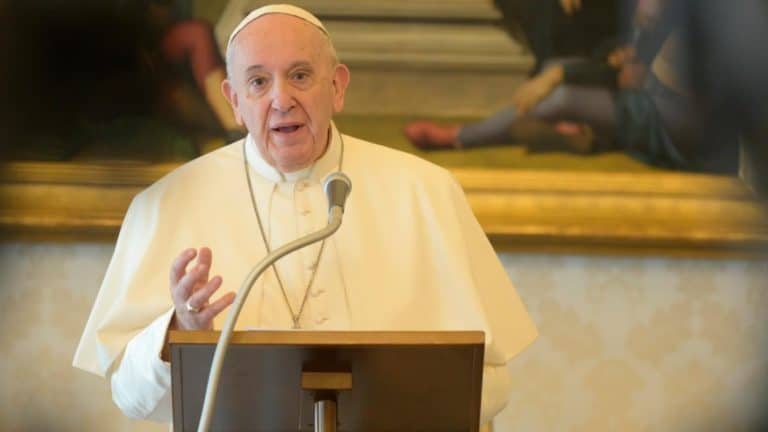On Monday, September 6, 2021, in “Theology for Millennials,” Mexican Father Mario Arroyo Martínez shares with Exaudi’s readers his article entitled “A Tweet of the Pope,” in which he reflects on the Holy Father’s appeal for prayer for the situation in Afghanistan.
* * *
Recently, the Pope tweeted: “The situation in Afghanistan commits us as Christians. In historic moments such as this, we cannot remain indifferent. Therefore, I appeal for prayer to be intensified and fasting to be practiced, asking the Lord for mercy and forgiveness.” Doing so the Pope manifests two things: his faith in prayer and his concern for the world. Both realities are part of the essential baggage that every Catholic should have.
In the first place, confidence in prayer, and also in the body’s prayer or penance, manifested in fasting, to which the Pope invites us. It’s curious, fasting is now fashionable as a way to keep one’s figure. In that case, it seems to us justified because it works; however, it can seem an exaggeration and even absurd to practice it for spiritual reasons.
“How is an Afghan woman benefitted by my not having eggs and bacon one morning?” It’s a question of faith, faith that the Pope manifests as, finally, he is the Guardian of faith, which we should have or at least ask his fellow religious.
With prayer, the soul becomes “catholic,” a word of Greek origin that means “universal.” With prayer, our heart becomes universal, in the measure that no suffering of a human being makes us indifferent. Prayer makes our heart identify with Christ, who is not indifferent to any human suffering, regardless if it’s the suffering of Afghan women, namely those of another religion and culture. In that case, prayer isn’t very rich, catholic, or universal when it’s limited to asking for personal needs.
Concern for the world, the desire to share its burdens, not looking at it with indifference — as the matter doesn’t affect me or my own — shows that one has a catholic mentality and “feels with the Church,” for whom all concerns and yearnings of men are important. How can this be achieved? Two habits are necessary: to follow the news –not to remain closed comfortably in our comfort zone, and to pray, so that our sentiments are progressively configured to Jesus Christ’s.
In this connection, an important source of prayer, which is complementary to the Sacred Scriptures, is the news, especially when it’s bad because it “hurts” us and impels us to raise our soul to God, to ask for help. It should almost be a movement of reflection: in face of a tragedy, or a situation of suffering that we learn about, we should immediately raise our soul to Heaven, praying for that situation or those people. That’s how it was often with Saint Josemaría [Escrivá de Balaguer], from whom an impetuous prayer arose when picking up the newspaper or watching the news. It was not in vain that he taught to find God in the midst of the world. It is, he stressed, an act of faith: the world has not slipped away from God’s hands; Providence often directs and corrects history’s tortuous directions.
For all of the above, given the dramatic exodus of Afghans, the attacks, the tension that reigns in the environment, the concern for the future of a country in the hands of fanatic Islamists, must not leave us indifferent, or lacking in solicitude for the small but existing Christian community in Afghanistan.
We can trust that God will make use of our prayer to channel history in the most appropriate way, in this case, the reality of the Afghan Church and of Afghan women. It is amazing to think that God wants to condition the well-being of a whole people to the generosity of a whole Church!
How can it be done? It’s easy, suffice it to engage in one or several days of fasting — skip a meal during the day, and every time we hear news about Afghanistan, to pray for those people. God likes especially intercessory prayer, especially if it’s for people we know because it manifests greatness of soul and trust in the divine power
The news, often sad, harsh, and evil should be a spur to foment our union with God and, through Him, with all of suffering humanity. Only thus will we be genuine Catholic citizens of a world in which God is neither absent nor indifferent, and of which we are protagonists.
Translation by Virginia M. Forrester










